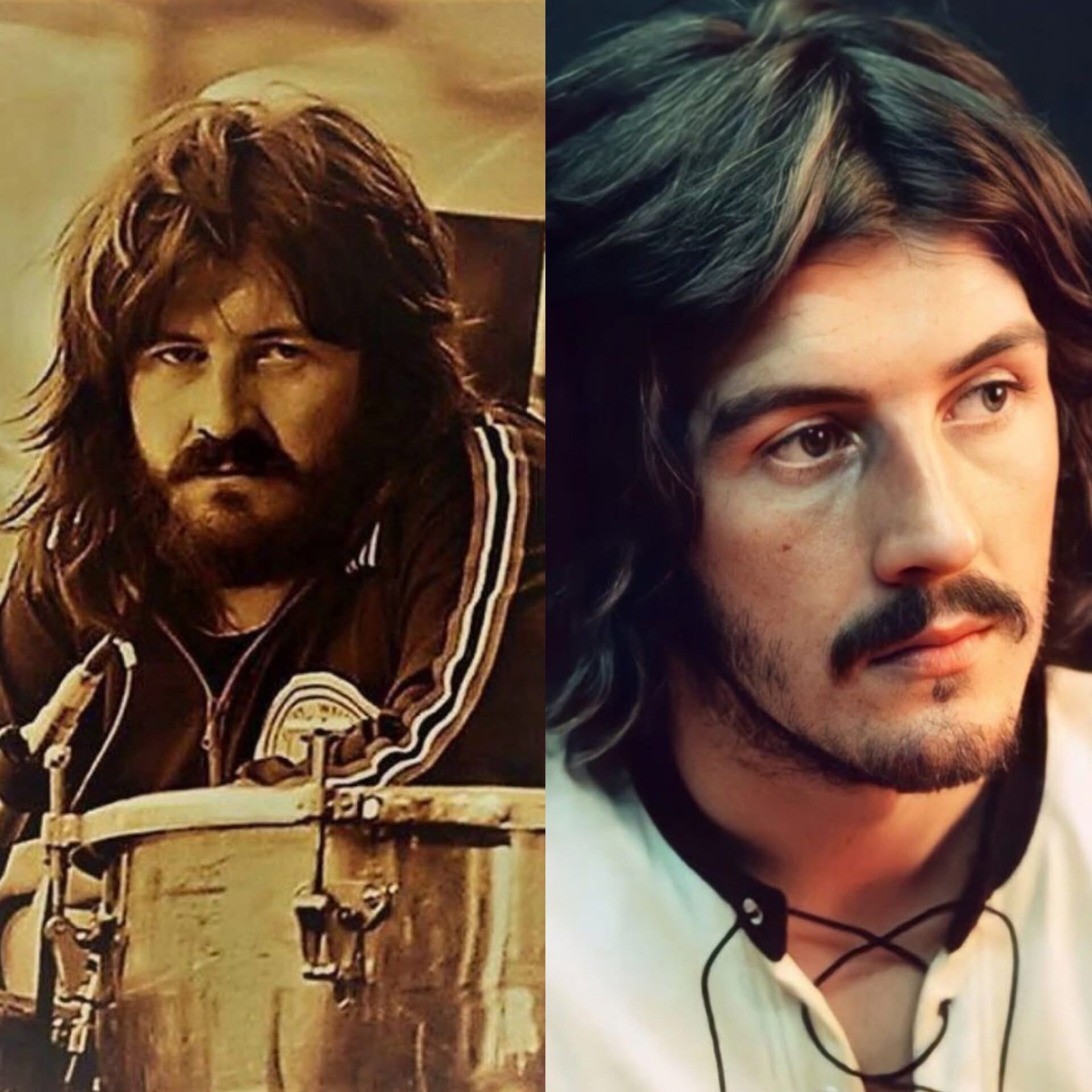John Bonham’s life was a compelling mix of humble beginnings, meteoric success, and enduring influence. Born on May 31, 1948, in Redditch, Worcestershire, England, he showed an early fascination with rhythm, building makeshift drum kits before receiving his first real set. Inspired by jazz greats like Gene Krupa and Buddy Rich, Bonham quickly developed a powerful, instinctive style that stood out in local bands during his teens.
His big break came in 1968 when he joined Led Zeppelin, forming one of rock’s most iconic lineups. Bonham’s drumming was a revelation—thunderous yet precise, aggressive but deeply musical. Tracks like “When the Levee Breaks” and “Kashmir” showcase his unique blend of raw power, syncopation, and feel, helping define the band’s groundbreaking sound. Onstage, his solos were legendary; offstage, he was loyal, humorous, and intensely private.
Despite the chaotic lifestyle that came with global fame, Bonham remained deeply connected to his family—his wife Pat and children Jason and Zoë were his anchor. He preferred the quiet of his Worcestershire countryside home, indulging in his passions for classic cars, farming, and British pub life. Friends and bandmates often described him as a big-hearted, down-to-earth man with a mischievous streak and unwavering loyalty.
However, the pressures of relentless touring and fame contributed to a struggle with alcohol. On September 25, 1980, after a day of heavy drinking, Bonham died in his sleep—an untimely end that marked the dissolution of Led Zeppelin. His death was a seismic loss to music, but his legacy lives on. Bonham redefined rock drumming, influencing generations with a sound that was as soulful as it was seismic. To this day, his groove, power, and feel remain the gold standard for drummers around the world.









